Blog
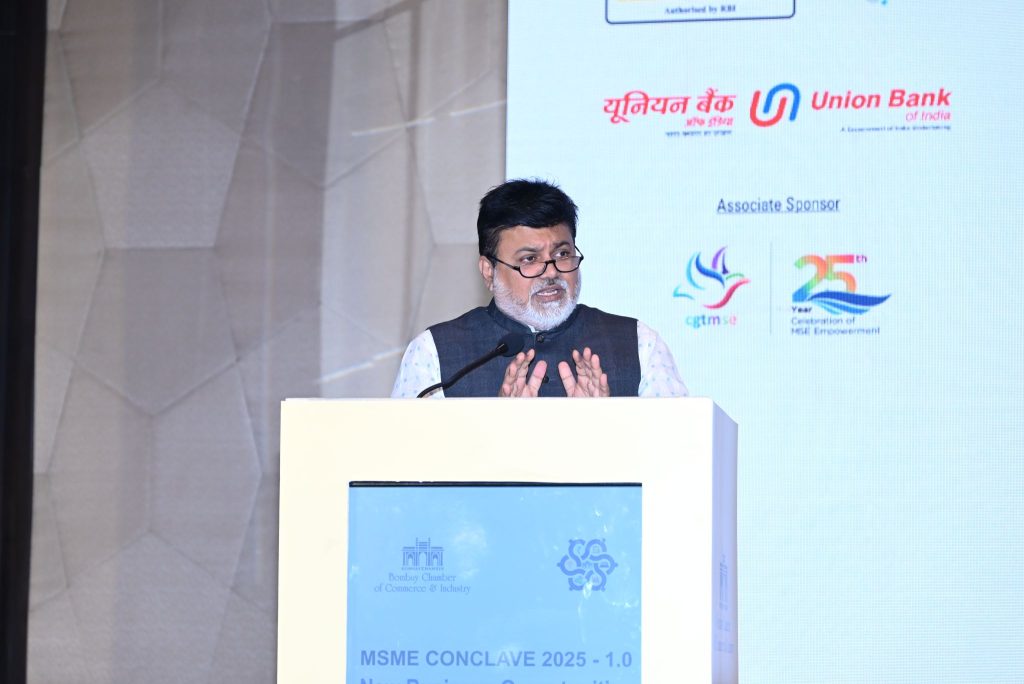
“MSMEs are not just the backbone of Maharashtra’s economy—they are its growth engines, its job creators, and its promise for the future,” said Hon’ble Shri Uday Samant, Cabinet Minister, Ministry of Industries, Government of Maharashtra, during his special address at the Bombay Chamber of Commerce and Industry’s MSME Conclave 2025 – 1.0, held on June 18 at the Taj Santacruz in Mumbai.
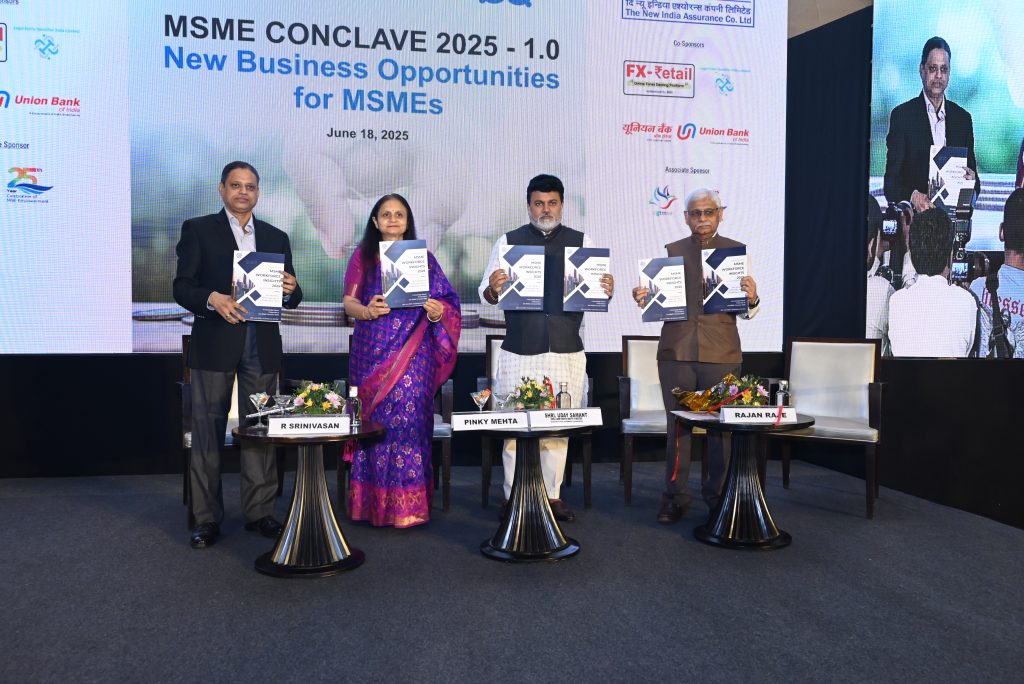
Themed “New Business Opportunities for MSMEs,” the conclave brought together a distinguished gathering of policymakers, industry leaders, diplomats, and financial experts to chart new pathways for the growth and global integration of India’s MSMEs. A key highlight of the day was the unveiling of the Bombay Chamber’s new survey report titled “MSME Workforce Insights 2025.” The report was launched jointly by Sandeep Khosla, Director General of the Bombay Chamber; Pinky Mehta, President of the Bombay Chamber and CFO of Aditya Birla Capital Ltd; Shri Uday Samant; Rajan Raje, Chairperson of the MSME Forum; and R. Srinivasan, Co-Chairperson of the MSME Forum. The insights from the survey formed the foundation of Shri Samant’s address, shaping the context for several key announcements.
Based on inputs from over 100 MSMEs across the Mumbai Metropolitan Region, the report revealed pressing employment-related challenges in the sector. It found that MSMEs currently require 55,000 skilled workers, with the majority of demand for fitters, electricians, and welders. At the same time, unemployment remains high, particularly in the technology and creative sectors, where skill mismatches persist. The survey also highlighted that MSMEs prefer hiring candidates who have completed 12th grade, and that most recruitment happens informally, through personal networks. With 41 percent of Maharashtra’s MSMEs located in the MMR, the findings underscored the urgent need for targeted job creation strategies and formalised skilling pathways.
Building on this, Shri Samant announced that the MSME sector in the MMR alone has the potential to create 80,000 jobs. He emphasised the state government’s commitment to supporting this vision through a series of robust initiatives. These include the allocation of ₹300 crore towards MSME development, the establishment of Smart MSME Hubs across all 36 districts with 20 percent land reserved exclusively for MSMEs, and the development of dedicated industrial clusters. Among the new developments are a tribal business cluster on 75 acres in Nashik, a pital metal cluster in Chandrapur, a mega textile hub in Amravati, and a women-led business cluster to encourage female entrepreneurship. The Minister also announced plans to assign chemical labs to MSMEs for product testing and quality certification.
Citing the transformation of Gadchiroli from a naxalite-affected region to an emerging industrial township, Shri Samant described the far-reaching impact of government-industry collaboration. He referenced upcoming infrastructure projects such as Wadhwan Port and the Chhatrapati Sambhaji Nagar Industrial Corridor as major catalysts for MSME growth. He called on businesses to work alongside the government to ensure that benefits reach the grassroots, noting that ₹9,500 crore in incentives have already been disbursed in the last three years, with MSMEs receiving top priority.
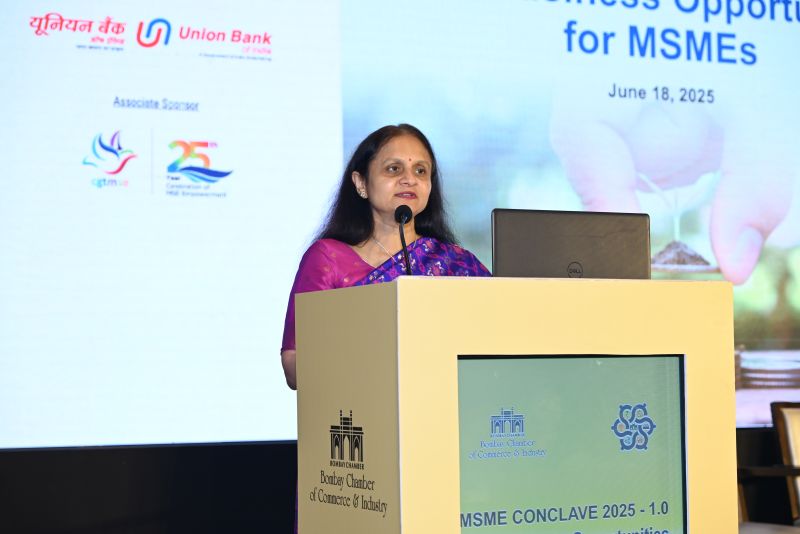
In her welcome address, Mehta reflected on the Bombay Chamber’s 189-year legacy of supporting India’s industrial and economic progress. Srinivasan set the tone for the conclave by emphasising the importance of preparing MSMEs for global supply chains and export readiness.
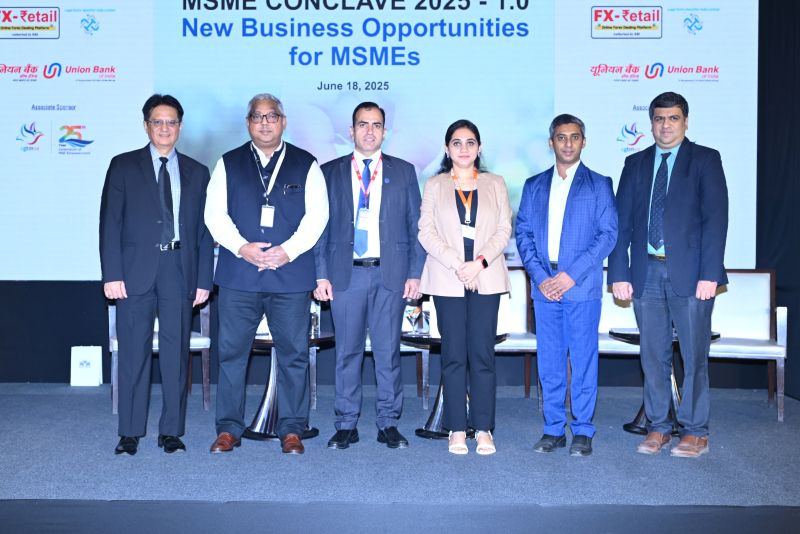
A high-impact session on Trade Finance and Factoring featured presentations by Ranveer Singh, MLP Head for Mumbai South at Union Bank of India; Manish Sinha, CEO of the Credit Guarantee Fund Trust for Micro and Small Enterprises (CGTMSE); Harish G. Aldangadi, General Manager of Retail Credit and Retail SME Processing at SVC Co-Operative Bank and Arun Gopal, Assistant General Manager, along with Tania Das, Senior Manager at Bank of Baroda. These sessions explored practical financing solutions aimed at improving liquidity, supporting working capital, and scaling exports for MSMEs.
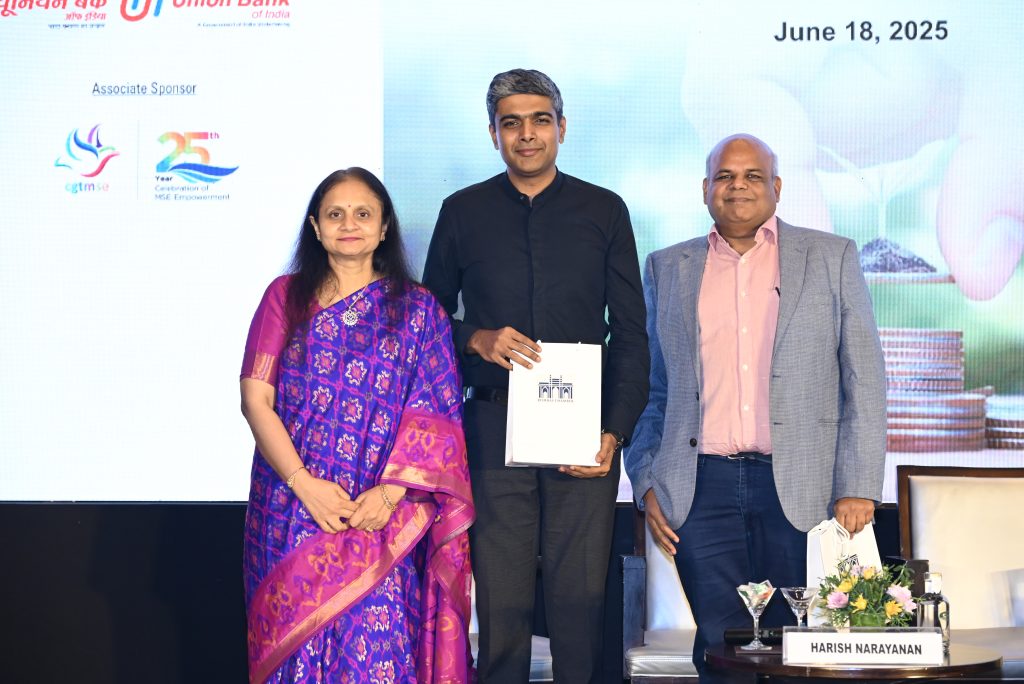
This was followed by a session on digitisation opportunities for MSMEs, led by Harish Narayanan, Chief Marketing and Digital Officer at HDFC Asset Management Company and Hareesh Tibrewala, CEO of Anhad Consultancy Services. The speakers discussed how digital tools and platforms can transform operational efficiency, customer outreach, and competitiveness for small and medium enterprises.
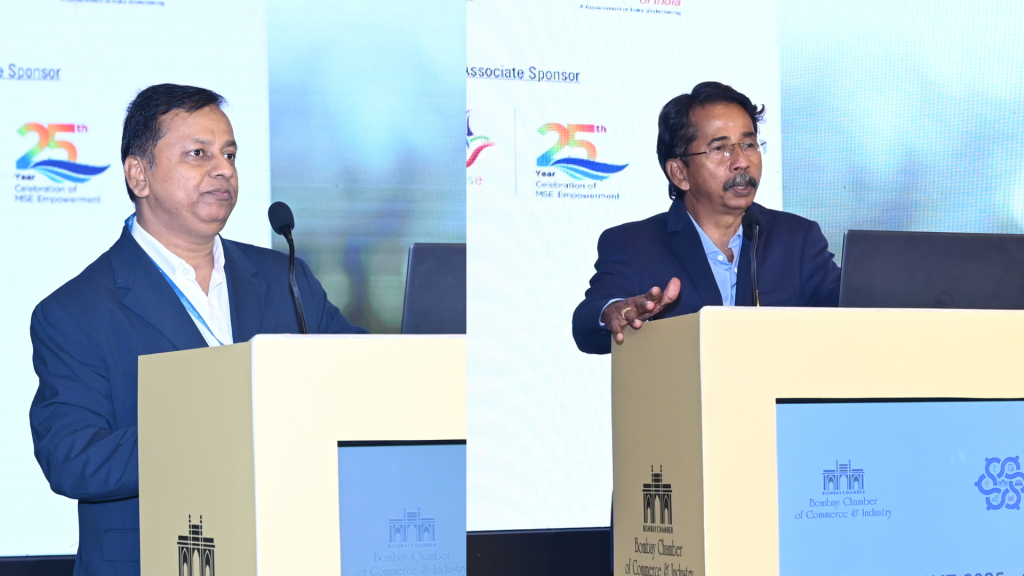
K. Ramesh, General Manager at New India Assurance delivered a presentation on comprehensive insurance solutions tailored to MSMEs under the Bima Sathi initiative, while Durgesh Srivastava, Vice President for Forex Settlement at CCIL, spoke on building secure, transparent, and efficient forex infrastructure for exporters.
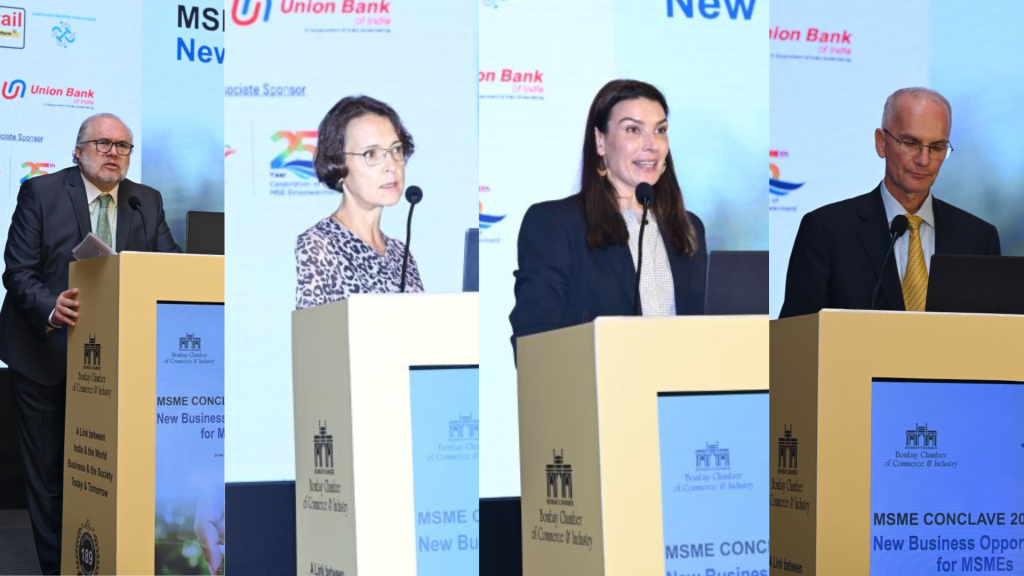
The final segment of the conclave was a session on bilateral trade opportunities, featuring the diplomatic community. H.E. Mr. Gustavo González Zbinden, Consul General of Chile in Mumbai; Mary Overington, Trade and Investment Commissioner – South Asia at the Australian Trade and Investment Commission (Austrade); Tibor Kovács, Trade Attaché at the Consulate General of Hungary in Mumbai; and Eva Verstraelen, Trade and Investment Commissioner for Flanders (FIT) in Mumbai, each presented opportunities for MSMEs in their respective regions. The session explored areas such as sourcing, market representation, joint ventures, and strategic collaboration.
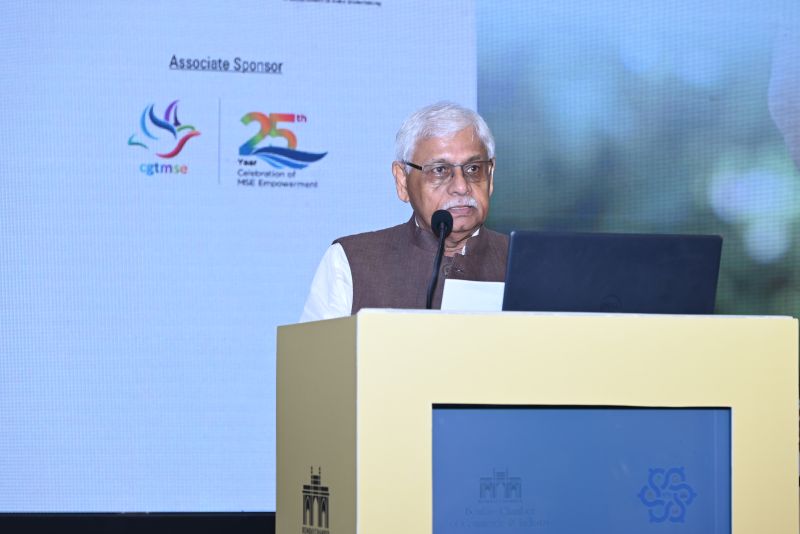
The event concluded with closing remarks and a vote of thanks by Rajan Raje, who reiterated the Bombay Chamber’s commitment to enabling access, information, and institutional support for MSMEs. He expressed confidence that the deliberations and insights shared during the conclave, especially those drawn from the Chamber’s survey, would spark actionable partnerships and policy alignment across Maharashtra and beyond.








